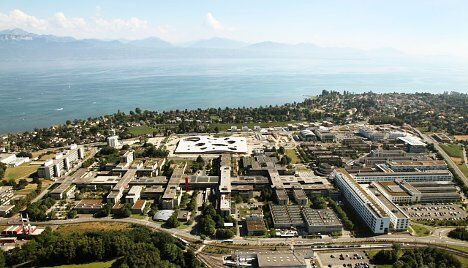Switzerland also took silver in the list with Zurich’s ETH technology institute coming second. This reverses the positions the two institutes claimed in the inaugural 2017 ranking.
In equal sixth position this year was the university of Geneva while institutions in Hong Kong, Singapore, the UK and Australian filled out the top 10.
The rankings were “dominated by countries that, through geography, government policies or culture, are open to the movement of students, staff and ideas, THE said of the ranking which reflect universities’ share of overseas staff, students and cross-border research.
EPFL is the most international university, according to @THEworldunirank https://t.co/iPSwG3z4JJ pic.twitter.com/GfdMYmE4xs
— EPFL (@EPFL_en) March 15, 2018
Announcing the results, THE also noted it was no surprise Switzerland had done so well. It pointed to the fact that the country shared borders with five other nations and was in the heart of Europe.
The Lausanne-based EPFL, which received a score of 97.7 out of a possible 100, was praised for its “particularly strong reputation in engineering” but also for its emerging life sciences reputation.
THE added that students at the institute – which has been named the best young university (less than 50 years old) three years in a row – had plenty of access to exchange programmes while the institute also offered a global internship scheme.
“For a small country like Switzerland, we can be proud to have two federal institutes on the podium,” Martin Vetterli,” told The Local after the THE ranking was announced.
“The data released by Times Higher Education today recognises our global network and faculty to attract an international pool of talents, for students on one hand and for researchers on the other hand, enabling us to achieve high levels of excellence with a global benefit for our country,” he added.
Breakdown by discipline
This year, THE also analysed universities’ international outlook across disciplines. Here, Switzerland also did well across the board with the global nature of its institutes visible in disciples ranging from the arts and humanities to business and engineering.
This is not the case everywhere. Analysis showed the UK was more international in terms of engineering, business and management and computer science while China, South Korea and Japan were more global in the arts, humanities and social sciences and less so when it comes to science.
This is the opposite of counterparts in the West, THE noted.
No US university in the top 20
As was the case with the 2017 ranking, there is a conspicuous absence of US institutions. In fact, the top ranked US universtiy this year is MIT in 30th place.
By contrast, there are eight UK institutions in the top 20 most international universities.
Editor's note: This article originally incorrectly stated that there were no US universities in the top 50 of the rankings.



 Please whitelist us to continue reading.
Please whitelist us to continue reading.